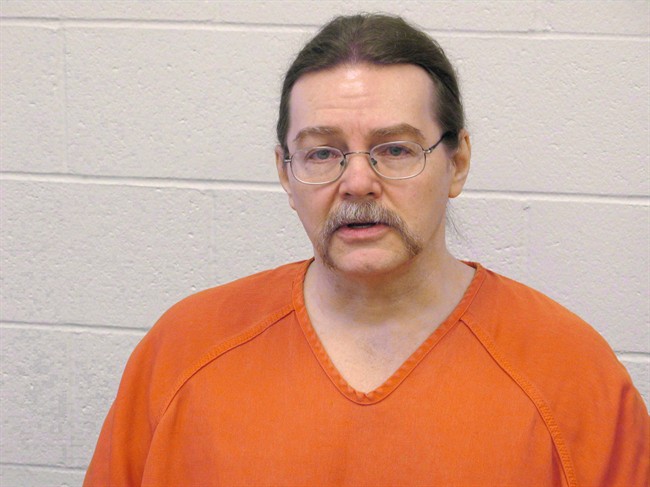CALGARY – A constitutional challenge to Montana’s execution methods could have a direct impact on a Canadian on death row in the U.S. state.

Lawyers for two condemned inmates, including Ronald Smith of Red Deer, Alta., are to be in a Helena courtroom Wednesday to argue that a sedative called for under Montana’s lethal injection protocols could lead to an “excruciating and terrifying” death.
Ron Waterman of the American Civil Liberties Union says the drug pentobarbital doesn’t adhere to a state law requiring an “ultra-fast-acting” barbiturate be used.
READ MORE: Move to abolish Montana death penalty passes significant hurdle
The hearing is to include testimony from medical experts who could shed light on pentobarbital’s effects.
Doctors have indicated that “ultra-fast-acting” isn’t a common medical term, which makes it difficult to form a definitive opinion on its application.
Waterman isn’t expecting an immediate ruling on what he says is a complicated case.

Get daily National news
“The judge knows that his opinion will be reviewed by the Montana Supreme Court regardless of how he rules, so he will take the time and be careful with his opinion,” Waterman said in an email.
READ MORE: Clock ticking down on clemency hopes for Ronald Smith
- High blood pressure drug recalled over low blood pressure pill mix-up
- Canadian Tire ordered to pay nearly $1.3 million for false advertising
- ‘Doesn’t make sense’: Union files labour complaint over federal 4-day in-office mandate
- Ottawa gives Canada Post a $1.01-billion loan amid ongoing financial struggles
“At this point, he needs to consider the credibility of the two principal witnesses and therefore he will do so and weigh out both sides before entering any decision.”
The hearing is set for two days and District Court Judge Jeffrey Sherlock is expected to reserve his decision.
Smith, who turns 57 next week, was convicted in 1983 for shooting Harvey Madman Jr. and Thomas Running Rabbit while he was high on drugs and alcohol near East Glacier, Mont.
He had been taking 30 to 40 hits of LSD and consuming between 12 and 18 beers a day at the time of the murders. He refused a plea deal that would have seen him avoid death row and spend the rest of his life in prison.
Three weeks later, he pleaded guilty. He asked for and was given a death sentence. Smith later had a change of heart and has been fighting for his life ever since. He has had a number of execution dates set and overturned.
The civil liberties union filed a lawsuit in 2008 on behalf of Smith and another death-row inmate in Montana. It argued that lethal injections the state was using were cruel and unusual punishment and violated the right to human dignity.
Sherlock ruled in 2012 that the injections were unconstitutional. He also pointed to a lack of training for individuals who administer the drugs and to a discrepancy over whether two or three drugs should be used.
The judge ordered the current trial to determine whether new drugs would satisfy requirements.







Comments